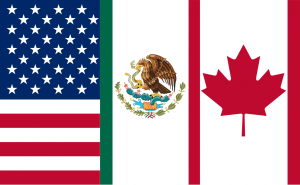
Canada, the United States and Mexico recently reached a new agreement on trade: the United States-Mexico-Canada Agreement (USMCA). While the USMCA signals a new era in North American trade, the deal does not bring any major changes to immigration policy.
It is important to note that while the agreement has been reached between the three parties, the original NAFTA is still in effect. This means that the current immigration laws under NAFTA remain in force until the USMCA replaces it.
The USMCA preserves the tariff-free market access that was a feature of NAFTA and contains new chapters and updates to the prior agreement to address modern-day trade challenges and opportunities. The new chapter on temporary entry is covered below.
How the language of NAFTA remains the same under the new USMCA
Barring any major legislative changes from the U.S., Canada, or Mexico, the labour mobility rules will effectively remain the same as they were under NAFTA. The immigration provisions are still housed in Chapter 16 entitled, “Temporary Entry for Business Persons” and the four central pathways to temporary entry work remain intact under the USMCA:
- Business visitors
- Intra-company transfers
- Professionals
- Traders and Investors
How the language of NAFTA changes under the new USMCA
The USMCA makes three small changes to NAFTA to clarify how and when the temporary entry provisions apply.
First, it introduces a new “Scope” section that makes it clear that the USMCA does apply to the temporary entry of business parties into another country, but does not apply to persons seeking access to the employment market of another country. The section also makes it clear that the USMCA does not apply to measures regarding citizenship, nationality, residence, or employment on a personal basis.
Second, it introduces a provision that states that business persons who are granted temporary entry to another country are not exempted from meeting any applicable licensing requirements, including mandatory codes of conduct, to practice a profession or otherwise engage in business.
Third, it introduces an expanded mandate for the Temporary Entry Working Group to examine key issues related to modifications of the Chapter and the development of measures to further facilitate temporary entry of business persons on a reciprocal basis.
The Canadian government has also noted that under the USMCA, Canada retains full discretion over visa and immigration policy and has the power to take measures related to health, safety, and national security.
NOTE: There is a possibility that the text of the agreement could be changed prior to implementation as each country’s legislature reviews the USMCA. It is necessary to follow updates and to note any changes that might affect immigration policy under the agreement.